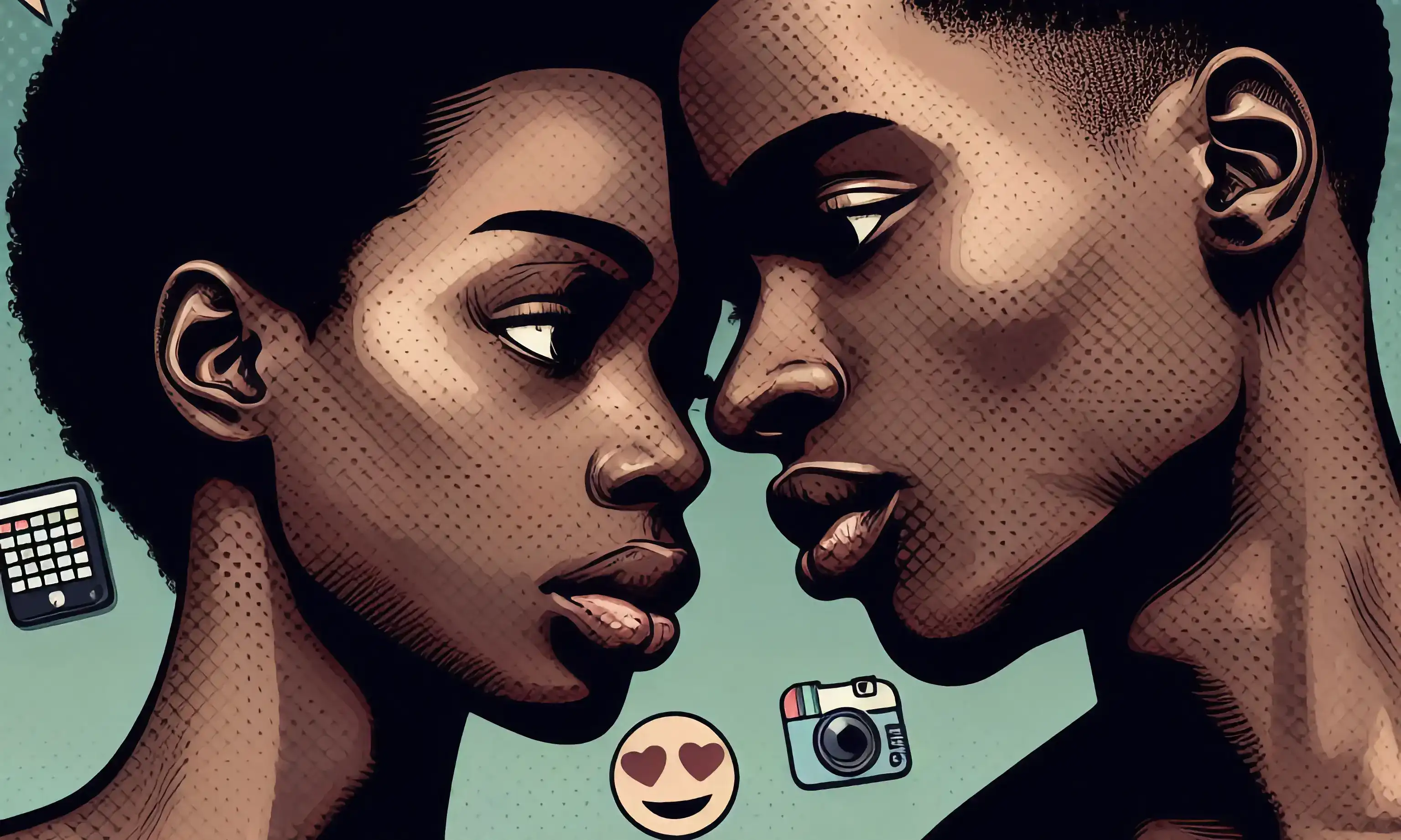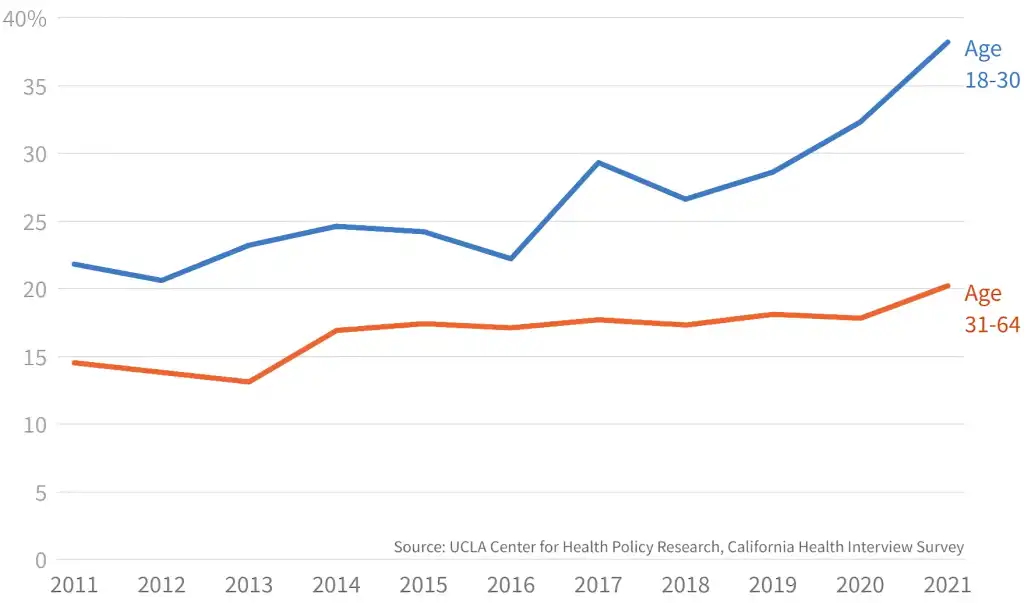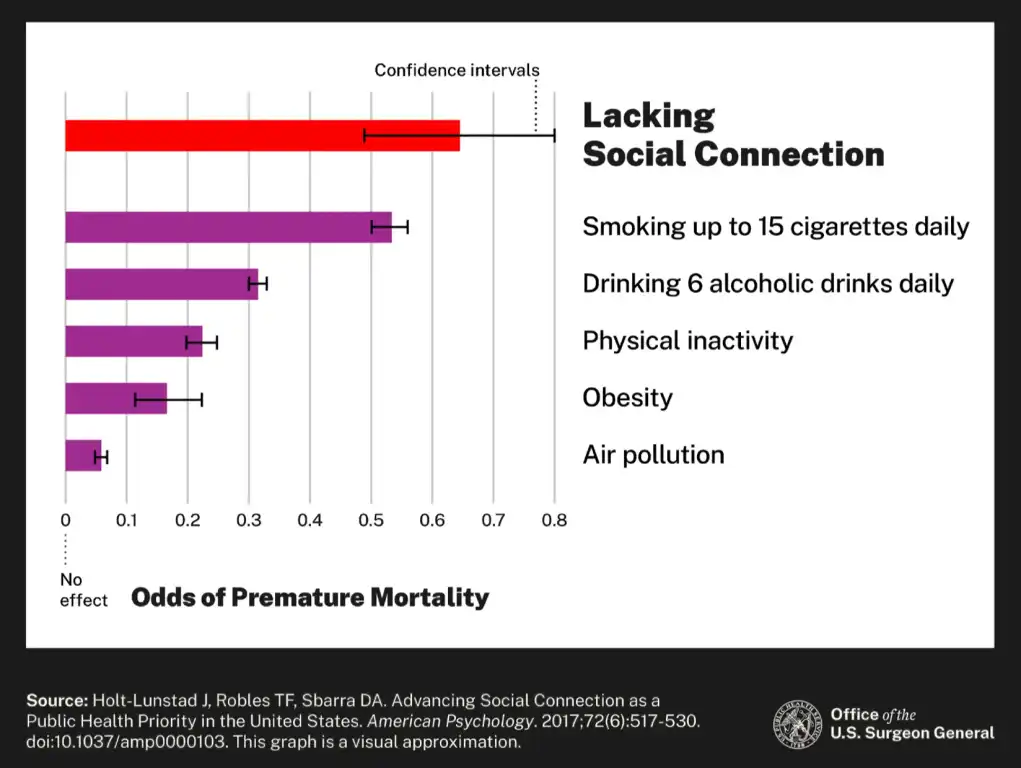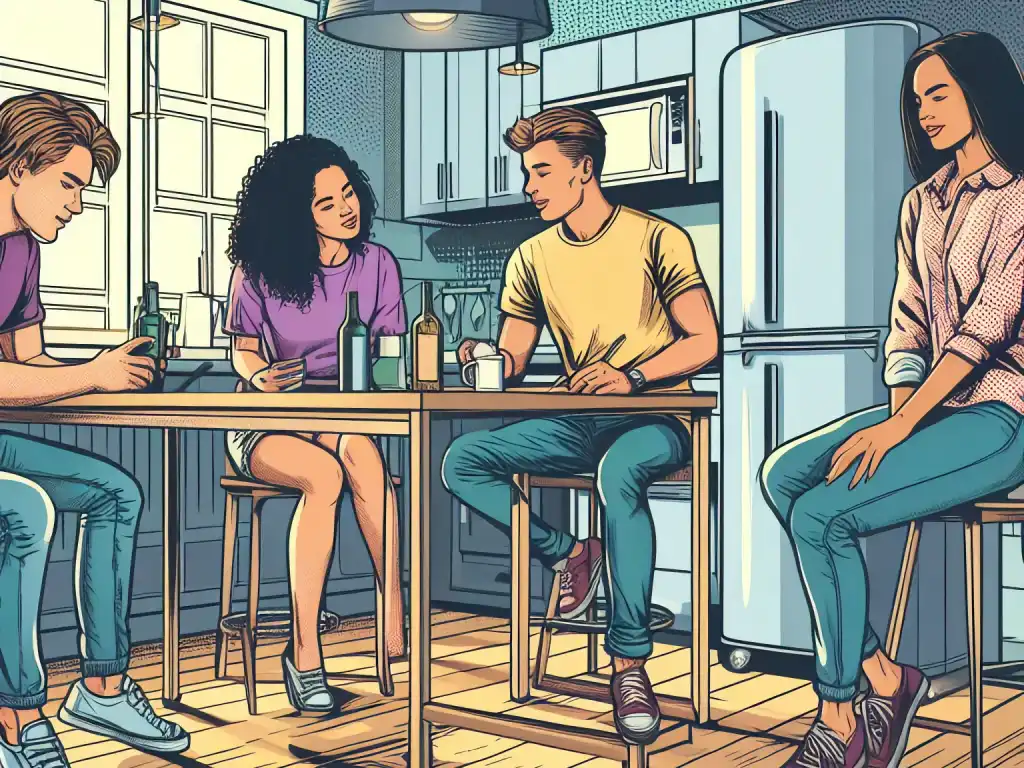
Gen Z Relationships: New Trends in Love and Intimacy
Gen Z and older generations see love and intimacy differently. Past generations valued romance, but today's youth have broader views on love and connection. For many young people, friendships now take center stage over romantic relationships. Pop culture has picked up on this shift, with more focus on platonic bonds and self-love. However, outdated societal pressures and unrealistic relationship expectations persist. This complex situation sheds light on Gen Z's nuanced, evolving approach to intimacy. In this article, I will explore how Gen Z is changing the face of love and intimacy and redefining relationships altogether.
The Role of Platonic Friendships
The rising prioritization of friendship reflects Gen Z's desire for dependable support networks. A recent survey showed that 55% of Gen Z ranks friendships as more important than romantic relationships.[1] The data aligns with pop culture's increasing spotlight on close platonic bonds. From "Friends" to more recent "prince-less" Disney protagonists, movies, TV, and music highlight friendship's stabilizing force. For young women especially, reliable friends provide emotional protection against the turbulence of modern dating. Many have quit dating altogether, citing experiences of dishonesty, harassment, and misogyny on apps.[2] With little hope for healthy romantic connections, Gen Z women turn to friendships for trust and vulnerability absent in many romantic relationships. Platonic bonds offer refuge from the disrespect and uncertainty Gen Z women frequently encounter when dating men.
Beyond serving as a haven, friendships also allow young people to explore intimacy without the constraints of traditional relationships. A recent study[3] revealed higher reported levels of intimacy between best friends versus romantic partners. Friendships can mimic romantic partnerships in their emotional depth, just without formal labels or sexual components. Some refer to especially close friendships as "friendships with benefits," implying intimacy like that found in romantic relationships. For a generation facing immense social transitions, from social media influences to economic instability, friendships emerge as more flexible support structures than traditional relationships.
Furthermore, research suggests Gen Z's relationship shifts are partially a result of social disconnection, not just bold boundary-pushing. Psychologist Jean Twenge[4] correlates Gen Z's historically low rates of sexual activity with parallel surges in depression and technology overuse.[5] While friendships blossom, young people report diminishing intimacy[6] and companionship in current romantic couplings compared to generations past. Though social norms are slowly modernizing, young people often feel bewildered in the rapidly digitizing dating sphere. Virtual connections have replaced vulnerability and humanity in relationships, leaving Gen Z craving deeper bonds but unsure how to foster them. The interpersonal unease suggests a generational longing for true communion, not just liberation from norms.
The Lonely Generation
Loneliness afflicts young people at troubling rates, though connection surrounds them. Adults aged 16-24 report greater loneliness than seniors 65+, with 73% of Gen Z feeling alone always or sometimes.[7] This isolation inflicts real damage, raising the risks of early death by 32%. Loneliness can be as damaging to health as smoking 15 cigarettes per day.[8] The hyper-technological world we live in connects youth virtually but isolates them socially. Though the internet and phones provide endless opportunities to engage, digital interactions cannot replace emotional bonds developed offline through presence and vulnerability.
Millennials straddled two eras, learning social skills before digital domination, but Gen Z is the first generation to not know a world without being constantly "plugged in." Today, the average American spends over 21 years online[9] over their lifetime, time once reserved for in-person relating. Just as Boomers now require digital mentoring, Gen Z needs guidance cultivating offline bonds diminished by immersion in the virtual. Their loneliness partly stems from avoiding the vulnerability of romance, which offers relief from isolation's pains. While friendships can feed the soul, romantic intimacy fills a unique need for connection.
While Gen Z boldly challenges intimacy conventions, lingering generational isolation threatens complete relationship reinvention. Despite expanding friendship networks and championing self-love, many young people report feeling more socially disconnected than previous generations. Individualistic focus on personal goals like career advancement, though financially wise, leaves little time to cultivate broader community belonging. Reduced face-to-face interactions in an increasingly virtual world also create disconnection. The disappearance of traditional civic and religious institutions eliminates the social infrastructure previous generations enjoyed. Even Gen Z's parenting style, with a heightened focus on child safety and supervision, values independence over interdependence. Youth are certainly not passive bystanders in their social alienation. Rampant technology overuse and workaholic academic lifestyles inhibit genuine human relating across contexts. But even the most socially motivated young people encounter systemic barriers to intimacy that require societal-scale solutions.
Embracing the Single Life
While friendships thrive, progressive Gen Z values are also shifting attitudes around romance. Many embrace being single over settling for unfulfilling relationships. A large majority of Gen Z proclaims they would rather remain unmarried[1] than partner with someone they do not love, a departure from older generations. Dating apps' endless options often yield few quality connections, driving singles away from apps entirely. Coupled with increasing perfectionism around relationships, romantic disillusionment proliferates. Traditional romantic ideas clearly no longer resonate.
Unlike older generations, Gen Z welcomes the single life. Enjoying solitude aligns with broader generational patterns like postponing marriage and parenthood while focusing on personal growth and careers.[5] Financial instability also leads to the loss of romantic partnerships. With paycheck-to-paycheck survival dominating Gen Z's objectives, romantic love understandably takes a back seat. While Gen Z still desires meaningful connections, traditional relationships seem risky and restrictive to them. Self-love offers control and empowerment in difficult times.
The Situationship and Alternative Communities
Ambivalence around pursuing romantic relationships also manifests in situationships. These casual relationships are defined by their emotional ambiguity. They are increasing among Gen Z. Coming partially out of fear of commitment, situationships allow physical and emotional intimacy without labels or expectations.[10] However, these arrangements' vagueness often leads to anxiety and informal comparisons to traditional relationships. Seeking intimacy while avoiding vulnerability reflects Gen Z's broader yearning for connection alongside wariness around traditional relationships. The rise of situationships shows Gen Z navigating changing dating norms with partial success. Gen Z continues perfecting the method for intimate relating that prioritizes individuality and fulfillment above all.
While structural isolation pervades the generation, small-scale social innovations bring hope. The rise of "intentional communities" reveals Gen Z's ingenuity around bonding. These communal living spaces promote value-alignment over blood relation or romantic attachment. Young people structure their homes together around shared social justice causes or creative passions. Daily communal meals, governance meetings, and work groups reinforce purposeful community. The model encapsulates Gen Z's hunger for chosen families united by meaning-making.
Similarly, organizations fostering intergenerational connections have expanded. Programs where older adults and youth trade skills and stories help young people lacking extensive family ties forge surrogate grandparental bonds. Though still in the beginning phases of development, these creative social interventions demonstrate Gen Z's resilience and imagination when confronted with barriers to intimacy.
Slow Living
Fortunately, signs of social renewal have appeared. The "slow living movement" pushes back against the dizzying speed of modern technology to make space for the unhurried human connections technology often displaces. Minimalism's rising appeal stems partly from the recognition that material excess distracts from relationships. The natural living movement draws folks back to nature to reset their bonds with the Earth and each other. Optimism surrounds experiments with 4-day workweeks, as employees gain much needed time for nurturing relationships. From Hollywood to The Big Apple, leaders speak openly about prioritizing people over profit and stemming societal isolation. Cultural shifts towards more holistic values aligned with human thriving fuel hope for broad-scale change led by Gen Z.
How Gen Z is Redefining Relationships for All of Us
While Gen Z's isolation should not be underestimated or oversimplified, the generation compellingly rises to meet the intimacy challenge. Their courage in questioning outdated relationship norms and focusing on self-fulfillment sets the stage for profound social renewal. Expanding access to diverse intimate partnerships, from enriching friendships to situationships, empowers young people with the power to create fulfilled lives. In the middle of modern disconnection, Gen Z models resilience as they create new forms of intimacy fit for these complex times. The new social roles they create provide hope for love's enduring evolution.
Beyond expanding constructs of intimacy, Gen Z also champions honesty regarding love's contradictions. Rather than seeking storybook romances, many acknowledge the inherent messiness of all relationships. They recognize that friendships, situationships, and traditional partnerships all carry challenges alongside rewards. Outdated fairytales of perfect love mostly create discontent when reality diverges from fantasy. Gen Z increasingly seeks imperfect love modeled with compassion over projecting idealized expectations onto others.
Final Thoughts
Despite Gen Z's progressiveness around relationships, systemic pressures persist. Gender inequalities in romance stubbornly linger, underscoring the appeal of female solidarity[10] found in friendships. Traditional expectations that young people couple up and have children also generate tension, even when statistical trends reveal otherwise. Navigating family members or employers who do not understand evolving relationship norms remains an obstacle. As scholar Jean Twenge notes, declining birth rates among the youth have problematic societal repercussions like caregiving shortages and unstable social security systems based on robust youth participation. Gen Z may pioneer new intimacy norms, but not without backlash.
Gen Z's bold reinvention of relating does not follow a straight path, nor can it single-handedly defeat all social disconnection. But the generation's imaginative examples illuminate a promising direction. They point society towards more nuanced constructs of intimacy centered on humanity and justice. By speaking and living their truths, Gen Z moves the cultural conversation forward with transparency, resilience, and care. Their vulnerability and wisdom in the face of complex challenges are torchlights guiding the future. May we have the courage to follow their light towards love reimagined.




